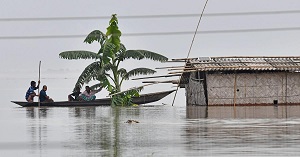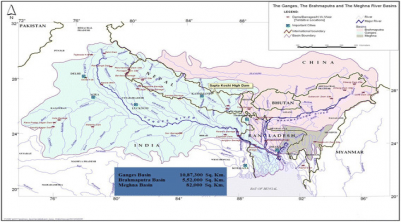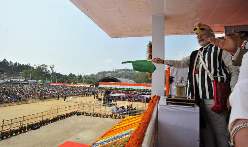People > Mirza Zulfiqur Rahman
Mirza Zulfiqur Rahman is a Programme Coordinator and Research Associate at the Heinrich Böll Regional Office, New Delhi and is a Visiting Associate Fellow at the Institute of Chinese Studies, New Delhi. He is responsible for the Programme on Democracy and Pluralities and co-manages the Alternative Development Paradigms/Worldviews with a geographical focus on Northeast India. He also co-manages thematic coordination and research with HBS Dialogue Offices in Washington D.C, Brussels and Hong Kong. He holds a Ph.D in Development Studies from the Department of Humanities and Social Sciences, Indian Institute of Technology (IIT), Guwahati, Assam. He completed his MPhil in Diplomacy in Disarmament and his Masters in International Relations from the School of International Studies, Jawaharlal Nehru University, New Delhi; and his Bachelors in Political Science Honours from Hindu College, Delhi University. His areas of interest include research on Northeast India, transboundary water sharing and hydropower dams, roads and connectivity infrastructures, conflict and insurgency, peacebuilding, development politics, migration and cross-border exchanges. His research specialization is on border studies in Northeast India and transboundary water sharing and management issues between China, India and Bangladesh. He is committed to grassroots-based alternative community work and development models. He is an avid photographer and has travelled extensively in parts of Northeast India for research work.

For some years now, devastating floods have become the new normal.

This paper examines the different perspectives of the border visible at local, unofficial markets held on the India-Bangladesh border in Meghalaya.

The history of riparian relations in South Asia can be termed as essentially bilateral in nature, but we can notice a change in the contours of riparian negotiations after the end of the Cold War.

Several infrastructure projects undertaken by New Delhi in Arunachal Pradesh have picked up pace in the past decade; these have been seen as a concerted effort to strengthen the war preparedness of the armed forces given that China contests India‘s claim
His areas of interest include research on Northeast India, transboundary water sharing and hydropower dams, roads and connectivity infrastructures, conflict and insurgency, peacebuilding, development politics, migration and cross-border exchanges.
© 2019 ICS All rights reserved.
Powered by Matrix Nodes